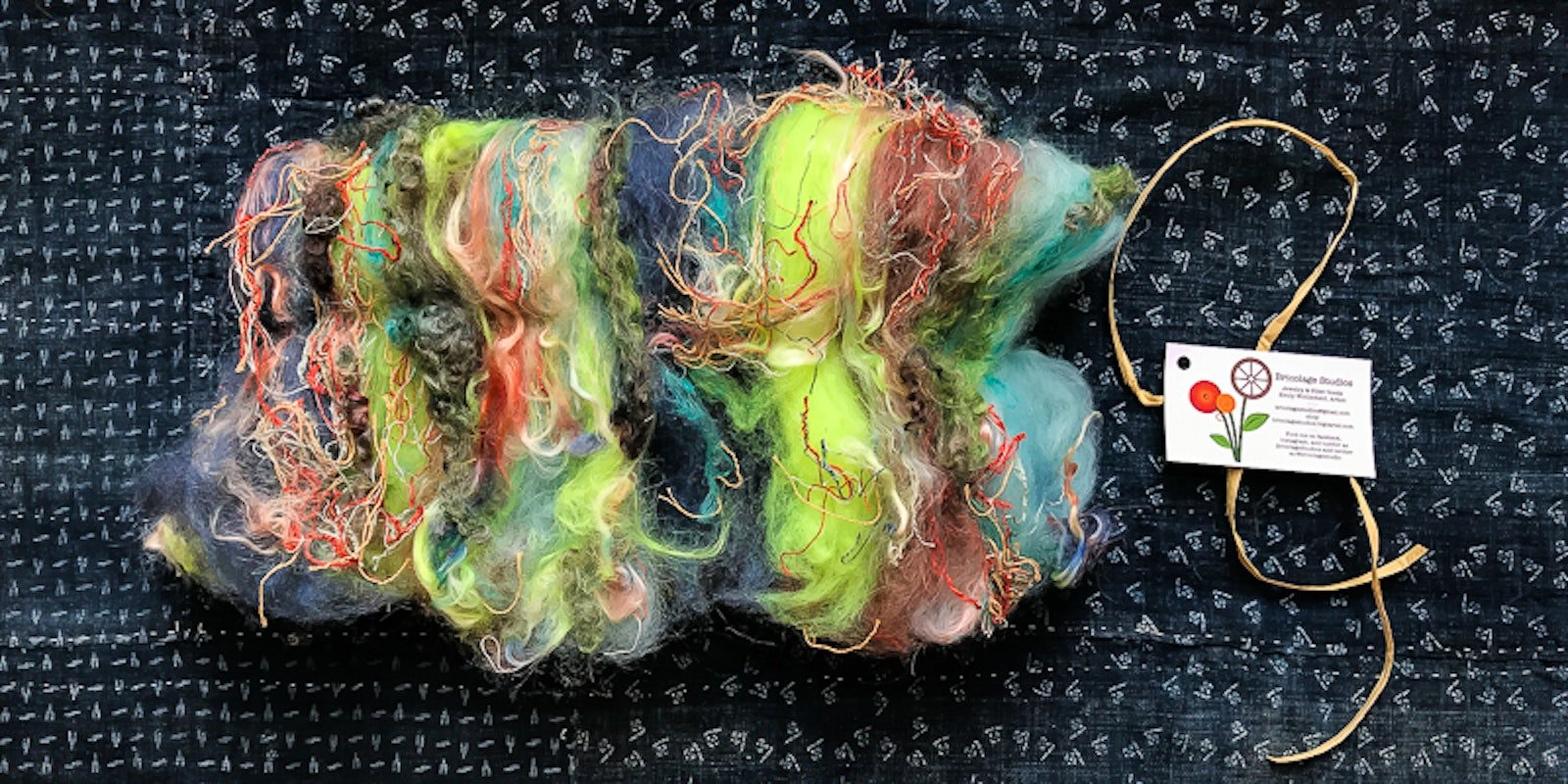I've returned from a wonderful weekend at the Wisconsin Sheep & Wool Festival. During a quick pass through the market, I caught up with Emily Wohlscheid, the talented artist behind Bricolage Studios. I've been stalking her web shop looking at textured spinning batts and Plant Packs. To my good fortune, I picked out a batt that included some dyed plant fibers. Now, how shall I spin thee?
Plant Packs—I'm smitten. Emily's dyed fibers from left: cotton, hemp, flax, and Tencel.
Our fiber festivals, conferences, and online marketplaces offer a wide variety of batts from super smooth preparations (see last week's post about Smoothie Batts) to wild bursts of texture. When I'm shopping for textured batts that incorporate locks, noils, yarn scraps, and more, I typically look for blends that also include clean, airy, lofty, well-carded fibers that help unite the textured bits. I find that this helps to keep texture secure when I begin spinning. What characteristics do you look for?
There are so many ways I could spin this batt, including stripping each of the base colors individually and creating a gradient or self-striping yarn. I decided that I especially love this acid green color when it is surrounded by the rose and blueberry fibers. Here is how I chose to split my batt:
 A. By turning the batt over, I could see the base colors more clearly and identify where I wanted to split it. By splitting down the center, I made two manageable sections that are nearly identical.
A. By turning the batt over, I could see the base colors more clearly and identify where I wanted to split it. By splitting down the center, I made two manageable sections that are nearly identical.
B. I often roll textured batt sections up to help keep the surface bits in place and distributed evenly along the length of the strip. If needed, I can open up the roll as it comes up into the drafting zone to allow the locks and such to appear on the surface of the yarn.
C. I love to use batts such as this for corespinning. It makes my fiber go farther and allows it to look more like the original batt than spinning a standard yarn. The core becomes the load-bearing element in the yarn. Here I am using a fine, 2-ply wool yarn as core.
D. Happy bobbin! Should I ply it again with a navy blue silk thread? Let me know what you think, and I'll post the final yarn on Instagram.
—Kate Larson
Featured Image: Festival treat: a fun batt from Bricolage Studios. Maggie Batt blended with Bluefaced Leicester, Targhee, Wensleydale, Suri Alpaca, salvage, hemp, and Tencel. Photos by Kate Larson.


